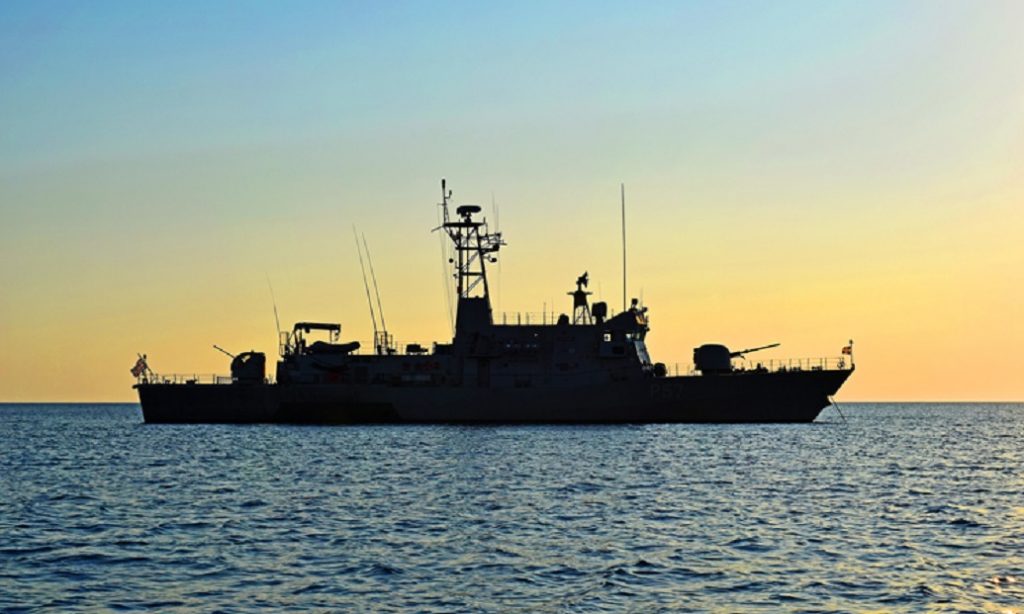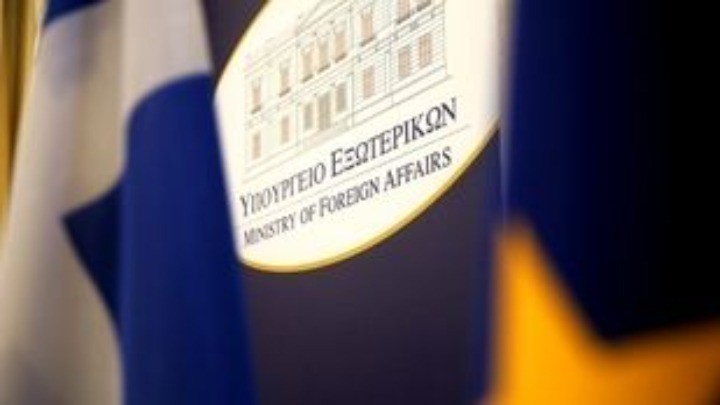
#Tags:
«Game of Thrones»East Mediterranean conflictLaw of the SeaTurkish aggressionInternational Court of JusticeA Very Biased, with Racist Overtones Editorial on Greece and Cyprus of The New York Times

FILE PHOTO: Τα γραφεία της εφημερίδας New York Times, στη Νέα Υόρκη. EPA, JUSTIN LANE
Constantine Tzanos, PhD
Nuclear Engineering
The New York Times’ editorial There’s a New Game of Thrones in the Mediterranean, published on August 30th, 2020, is very biased, tarnishes the reputation for objectivity of this great newspaper, and has racist overtones. Let me explain why.
Its title seeks from the very beginning to trivialize a crisis that may lead to a war. A war is not a game. It is a catastrophe. The title exhibits disrespect for the people of a small southern European country, Greece, who are defending their freedom against the aggression of a tyrant who is dreaming to leave the legacy of a conqueror sultan.
The editorial states: Feuds between Greece and Turkey are hardly new. It again trivializes the threat of war unless Greece would give in to the demands of the tyrant.
Turkey, however, has found itself excluded, in part because of Greece’s territorial claims. Greece does not have any territorial claims against Turkey. Greece defends her rights on its continental shelf and exclusive economic zone (EEZ) as these rights are provided by the international law of the sea. Greece has proposed to Turkey to submit any related disputes to the International Court of Justice, but Turkey has refused to agree on the proposal opting to force its demands by the use of military force.
Turkey is a member of NATO but not of the European Union; Cyprus is a member of the European Union but not NATO; and Greece is a member of both, creating overlapping and conflicting loyalties. What are the overlapping and conflicting loyalties of Greece? They are not any. And what are the loyalties of Turkey to NATO? The editorial fails to state that Turkey has betrayed its loyalty to NATO and The Countering America’s Adversaries Through Sanctions Act (CAATSA), requires the U.S. to sanction Turkey for buying the S-400 from Russia.
An attempt by Germany to untie this Gordian knot foundered when Greece announced an energy deal with Egypt that effectively claimed rights to a broad area of the sea, which it did in response to a similar accord between Turkey and Libya. The editorial fails to state that the Libya-Turkey accord is violating Greece’s rights as they are dictated by the international law of the sea. Greece and Egypt agreed to delineate part of their EEZ’s in accordance with the international law of the sea. There is no Gordian knot here. Simply, Turkey is violating the rights of Greece and is refusing to refer any disputes to the international court.
Greece announced a demonstrative extension of its territorial waters off its western coast to 12 miles, in effect warning Turkey that it could do the same in the Aegean Sea on its eastern side, a move Turkey would not tolerate. The editorial fails to state that these extensions are rights provided to Greece by the international law.
It also seems bizarre for Mediterranean and European countries to be plunged into extraneous tensions when there are so many serious crises to keep them busy, including the economy, the pandemic, the political suspense in the United States, the street clashes in Belarus and Russia’s threat to intervene in Belarus. The editorial considers the violations of Greece’s rights by Turkey and Turkey’s threat to push its demand by military force to be not a serious crisis deserving the attention of these other crises. To the writers of the editorial seems bizarre that the lives of the people of Greece and Cyprus, small countries of southern Europe, can divert attention from the political suspense in the United States and the street clashes in Belarus. Are they inferior people?
Though international law is largely on the side of Greece in the maritime dispute, there is room for negotiation, and Turkey’s explorations in disputed waters have not yet crossed a legal red line. Again, the editorial refuses to recognize that Turkey’s actions are violating Greece’s rights, and sees room for Greece to negotiate her rights with Turkey. It does not see room for the resolution of any related disputes by the international court.
What is peculiar in this crisis is that competition for fossil fuels should have given way by now to competition over how to stop using them, especially among countries that have subscribed to the Paris climate agreement. The editorial fails to tell to its readers that the resources of the continental shelf and of the EEZ are not only the fossil fuels.
A brief summary of this response was submitted as a letter to the New York Times’ editor. There was no response.

